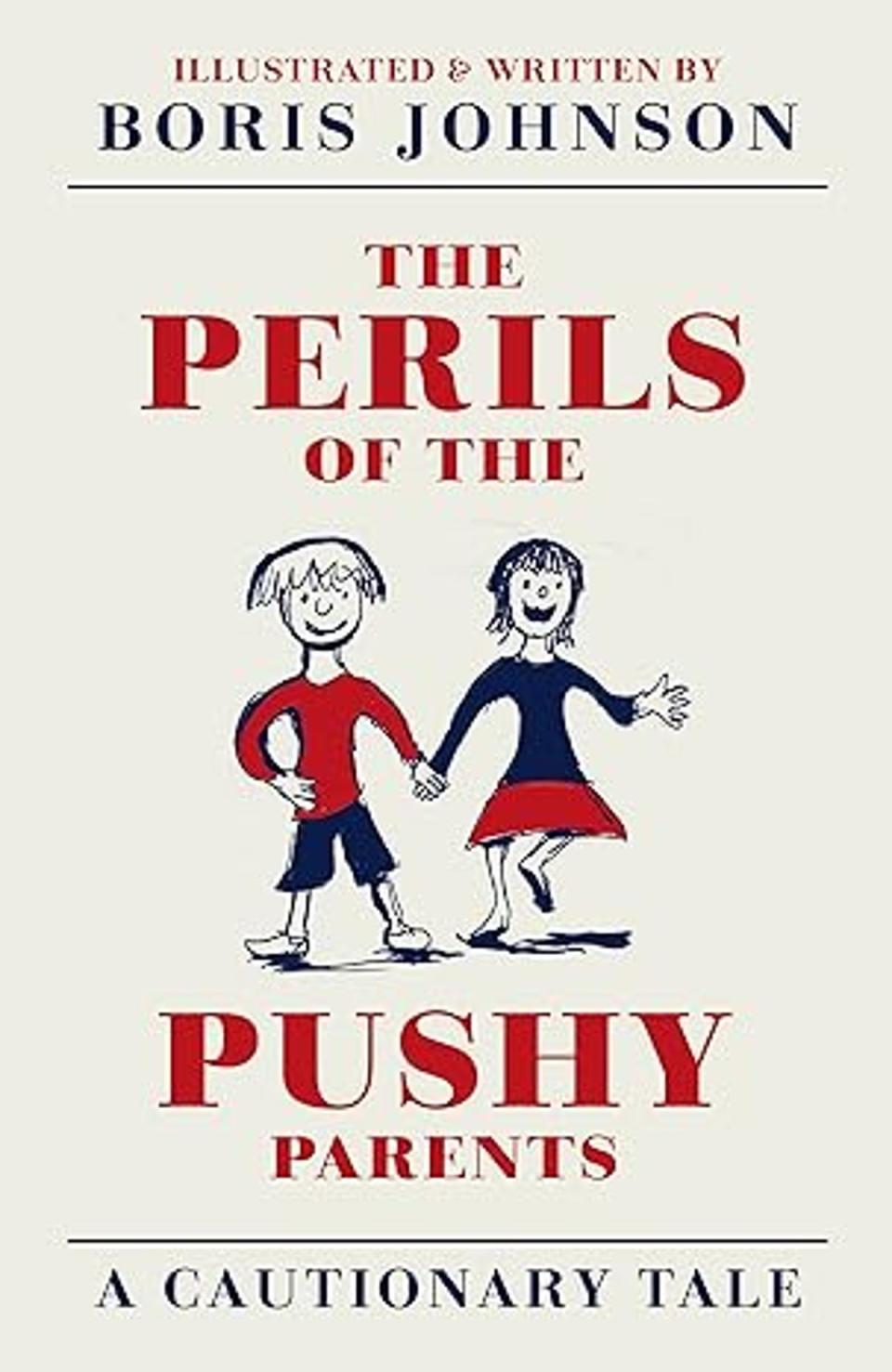Are pushy parents monsters or deliverers of potential?

The closest I’ve ever got to being a pushy parent is making my children drink fresh orange juice. OK, so I did once storm into the school to demand an answer to why Lola had been dropped as school eco ambassador after being told she had won the position – I got her reinstated. Yet I’m often too busy as a single working mum even to keep on top of all the homework. Somehow, I’ve raised a bookworm in Lola, who often walks into a lamppost while reading a book. But I’ve never dragged my child over the finishing line at sports day – like some mums.
But when I saw a mum at a children’s birthday last weekend yawning and dropping off to sleep while cradling a paper plate of cheese sandwiches, the absolute reality of pushy parenting hit home. “Ready for bed?” I said jokingly over the loud noise of Mr Lolly entertaining a class of screaming six-year-olds in a church hall. “Or are you just bored out of your mind?”
“No,” was the answer she gave while half-opening her eyes for a chat. It turns out that the mum, Miriam, gets up at the crack of dawn – 4am to be exact – to take her eldest daughter, Annie, 13, swimming. Her child swims for a London squad at county and regional level and is working towards gaining a place on the junior England squad.
Miriam’s own mum warns her that she’s pushing her daughter too hard, Miriam tells me, and she admits she struggles with Annie “rolling her eyes” whenever she gives her constructive feedback about her swimming technique. “But, when I look at my childhood,” she says, “and what I could have achieved if I had been given the same opportunities at that age, I know in my heart that I’m doing the right thing.”
She does, however, always ask her daughter the question “Have you had enough?”, she tells me, “if not daily, then weekly”. She believes in keeping the lines of communication open as it’s a vast commitment for both of them. “If she refused to swim,” says the mum, “she knows she would be hurting herself more than anybody else.”

If there’s any ray of hope for this mum – it’s Emma Raducanu. The 21-year-old tennis star recently insisted she is “lucky” to have a pushy mum and dad after years of resentment. She initially didn’t even like the sport that makes her an estimated annual wage of £12m., saying her father “forced” her to play tennis. Her dad, Ian Raducanu, has always micro-managed his daughter’s career both on and off the court. It took her to the 2021 US Open title, but has also been blamed for the trigger-happy way she seems to switch coaches every few months.
In Raducanu’s junior years, her father reportedly wanted a different coach for every individual stroke. Of course, the “dad” in charge is an old story: Richard Williams famously wrote a 78-page blueprint for turning Venus and Serena into tennis legends. (It worked.)
Raducanu’s parents were against boyfriends, the player told The Times in an interview, “as it interfered with training”, and when she was younger, she wasn’t even allowed to hang out with her girlfriends. “A lot of the time I was very resentful,” she admitted.
It’s made me reconsider pushy parents – I felt compassion for the mum I was listening to. Why are they vilified rather than applauded? We generally assume that if a child excels – there is a pushy parent in the wings. But for some, it’s not the case, such as Keir Starmer, who was a talented Guildhall music scholar from the age of 11 to 18 – he played the flute, piano, and violin.
According to his biographer, Tom Baldwin, the young Keir who was a pupil at a grammar school in Reigate, Surrey and dubbed “superboy” by his siblings, because he always wanted “to win”, was driven because of the Phaeton complex – a psychological condition caused by the absence, or loss of one or both parents. Starmer’s toolmaker dad Rodney was overbearing and remote and dedicated much of his time to looking after Starmer’s mother Josephine who had Still’s disease – a rare type of inflammatory arthritis.

We’ve all heard about the repercussions of being a pushy parent, as Boris Johnson summed up in his largely forgotten cautionary tale, The Perils of the Pushy Parents, in 2007. In it, the former PM casts a satirical eye over the phenomenon, making the point that if you push your children too far, it’s likely to backfire dramatically.
Brooke Shields turned on her mum for letting her pose naked at the age of 10 for a Playboy publication and allowing her to play a child prostitute in Louis Malle’s 1978 film Pretty Baby when she was 11. Home Alone star Macaulay Culkin said his father would make him do movie after movie despite the child actor begging him for a break.
It’s a cut-throat world too for supermodels: Bella Hadid’s mother Yolanda came under fire for allowing her daughter to get a nose job at 14 to get ahead in modelling – a decision Bella regretted, according to her interview in Vogue magazine in 2022.
The mum nodding off next to me, however, says she’s not fazed by the label “pushy mum” despite all the bad press.
“It’s about having the gift of hindsight as a parent,” she tells me. “Children are too immature to recognise the potential in front of them – and to make those decisions.”
Parenting author and mum of four, Sarah Ockwell-Smith, whose new book How To Raise a Teen, out 4 July, spearheads the “gentle parenting” approach of empathy, respect, understanding and boundaries, says “there is a fine line between encouraging and pushing”.
“A lot of parents try to live their dreams through their children – I think it’s quite rare when it’s totally driven by the child,” says Ockwell-Smith.
Even if it is driven by the child, she says, “it’s important to be a scaffolder”, a parent who provides support to achieve their child’s dreams, rather than using the “snowplough” approach, in which parents clear the path of all obstacles and push their child down it.

“Tweens and teens are developing their identities,” she tells me. “They try on lots of hats to decide who they want to be. They may have been good at something but don’t want to do it any more. A pushy parent won’t let them give it up.”
According to Ockwell-Smith, not listening to your child is very damaging. “Parents end up raising an individual who is a chronic people-pleaser, who is living for other people.”
Instead, she says, it’s about working with a child’s inner motivation, rather than external pressures.
“Society relies on controlling children by bribing them or making them feel bad,” she says, “[They do it] by using reward charts and paying their kids for doing well in GSCEs and A-levels and [by] yelling at them.”
The solution, she claims, is to be “guided by your children” rather than acting like a dictator and to “realise that your hopes and dreams for your child are not often their own ”.
According to research, pushy parenting can have a huge negative psychological effect on young children, too – it’s been linked to an increased risk of anxiety and depression. A study at University College London also found that the pressure children feel today to achieve academic success is unprecedented.
Pushy parents are more common today than in previous generations, according to Dr Amanda Gummer, founder of www.goodplayguide.com and chair of the Association of Play Industries. This is owing to factors that include increased competition in the modern world and social media influence, which “create unrealistic comparisons and pressures, as parents see curated portrayals of other families’ successes and achievements”, she says.

Interestingly, even the original American “tiger mum” Amy Chua has backtracked on the brutal parenting style she described in the best-selling Battle Hymn of the Tiger Mother in 2011 and feels regret about how she handled parenting. She revealed in the Daily Mail last year that “if I didn’t change, my daughter would hate me forever”.
Other pushy parents wear it as a badge of honour – and studies based on data from the National Child Development Study for pupils born in 1958, suggest that parents who push their children to work hard at school have a greater impact on their child’s academic success than their teachers.
For some parents, however, the pushiness happens in secret. In a 2019 UK survey of 4,000 parents of children aged between 14 and 18, a third of parents who hire tutors to help their children with schoolwork admit they are likely to lie about the extra help for fear of being called “pushy”.
It could be said that at least the children of pushy parents aren’t getting back from school and being left to their own devices to eat popcorn in front of Vampirina – like mine sometimes are. But while I admire pushy parents – I’d never want to be one. While I care deeply about my children’s future, quite frankly, I wouldn’t want to be dubbed a monster.


